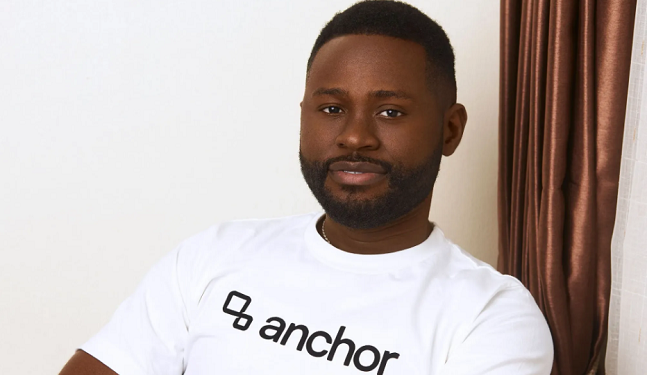Nigerian Banking-as-a-Service Provider, Anchor, Surges Ahead with $2.4M Seed Funding
Nigerian banking-as-a-service (BaaS) provider, Anchor, recently secured a substantial $2.4 million in seed investment. This funding round was spearheaded by Justin Kan’s Goat Capital, with notable participation from FoundersX, Rebel Fund, and some existing investors such as Y Combinator and Byld Ventures. Anchor had initially stepped into the spotlight just a year ago, backed by over $1 million in pre-seed funding. The core objective of Anchor is clear-cut: they offer a suite of APIs, dashboards, and development tools designed to empower developers in integrating and creating banking solutions.
Anchor’s competitive landscape includes other BaaS providers like JUMO, Maplerad, OnePipe, and Bloc, making the Nigerian fintech sector a bustling ecosystem. One of the key catalysts driving the popularity of BaaS platforms is the sluggish pace at which traditional banks adapt to the dynamic digital banking environment. Consequently, these platforms have become magnets for neobanks and businesses seeking to seamlessly integrate financial services into their products. BaaS providers like Anchor seize the opportunity to offer more personalized, cost-effective, and flexible solutions, encompassing bank accounts, payments, savings, and cards.

Anchor operates by partnering with regulated banking institutions, claiming to expedite the process of developing banking products from years to mere days. Initially focused on consumer accounts, Anchor has since expanded its APIs to include business accounts, card issuance, bill payments, bulk disbursements, cross-border payments, and developer-centric features like an audit log system and developer webhooks. According to Segun Adeyemi, Anchor’s co-founder and CEO, “If you look at the scope of product today, even though there were a few other players that have been in the market before us, there is no one that has the scope of offering that we have in the market today.”
Why The Investors Invested
The decision of prominent investors to commit $2.4 million to Anchor can be attributed to several compelling factors. Firstly, Anchor occupies a unique position in the Nigerian fintech ecosystem. With its extensive suite of BaaS offerings, it stands out as a comprehensive solution provider in an otherwise crowded market. Investors recognize the immense growth potential in a company that possesses such a wide-ranging toolkit for developers and businesses looking to embed financial services.
Read also : STARZPLAY Partners TPAY for Mobile Payments
Also, the fintech landscape in Africa, particularly in Nigeria, is experiencing remarkable growth. The emergence of neobanks and tech-driven enterprises has created a significant demand for versatile BaaS solutions, a demand that Anchor is well-positioned to address. This alignment with the market’s trajectory makes Anchor an attractive investment opportunity.
Again, Anchor’s impressive growth metrics further justify the investors’ decision. With over 270 clients, including fintechs, SaaS companies, e-commerce ventures, and tech-enabled businesses, Anchor has achieved substantial market penetration in just a year. Claiming to have facilitated over $550 million in annualized total transaction volume (TTV) and achieving a month-on-month revenue growth rate of 30%, Anchor exhibits strong financial performance. This growth is fueled by various revenue streams, including processing fees, account and card issuance fees, and interest income on the float.
A Look at Anchor
Anchor, founded a year ago, was established by Segun Adeyemi, Olamide Sobowale, and Gbekeloluwa Olufotebi. The startup is primarily focused on the Nigerian market, where it operates as a banking-as-a-service provider. Its core mission is to simplify banking for developers by offering a suite of APIs, dashboards, and tools.
One notable aspect of Anchor’s approach is its collaboration with regulated banking institutions, enabling businesses to expedite the development of financial products. In its early days, Anchor concentrated on consumer accounts, but it has since diversified its offerings to include business accounts, card issuance, bill payments, bulk disbursements, cross-border payments, and developer-specific features like an audit log system and developer webhooks.
Read also : Egyptian Healthtech Startup Sehatech Secures $850,000 Investment to Disrupt Healthcare Insurance
As of its last update, Anchor boasted a clientele of around 270 clients, including fintechs, SaaS companies, e-commerce enterprises, and tech-enabled businesses. It has experienced impressive growth, with approximately 63 of these clients actively transacting on the platform. Furthermore, the company has capitalized on the burgeoning fintech landscape in Africa, aiming to serve a $7 billion addressable market in Nigeria, with aspirations of pan-African expansion in the future. Partnering with the fintech arm of Nigeria’s largest telecom, MTN, indicates Anchor’s commitment to tapping into the vast potential of the African embedded finance market, which is projected to be worth $384.8 billion by 2029. Justin Kan, partner at Goat Capital, believes Anchor is on the path to becoming a category leader, solidifying its promising position in the fintech industry.
Charles Rapulu Udoh

Charles Rapulu Udoh is a Lagos-based lawyer, who has several years of experience working in Africa’s burgeoning tech startup industry. He has closed multi-million dollar deals bordering on venture capital, private equity, intellectual property (trademark, patent or design, etc.), mergers and acquisitions, in countries such as in the Delaware, New York, UK, Singapore, British Virgin Islands, South Africa, Nigeria etc. He’s also a corporate governance and cross-border data privacy and tax expert.
As an award-winning writer and researcher, he is passionate about telling the African startup story, and is one of the continent’s pioneers in this regard







